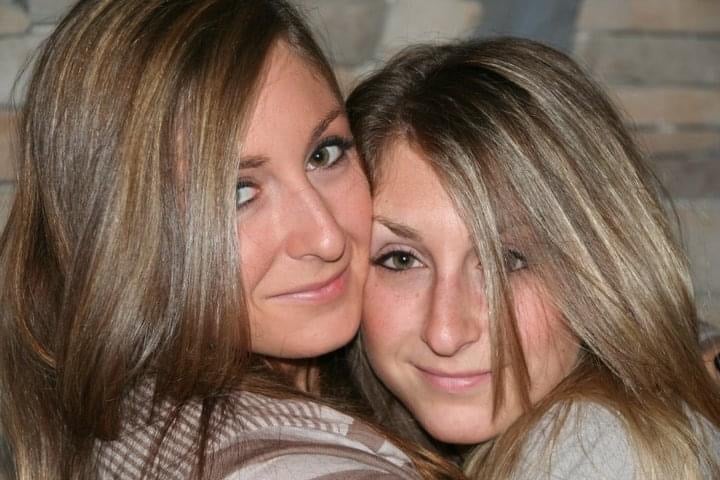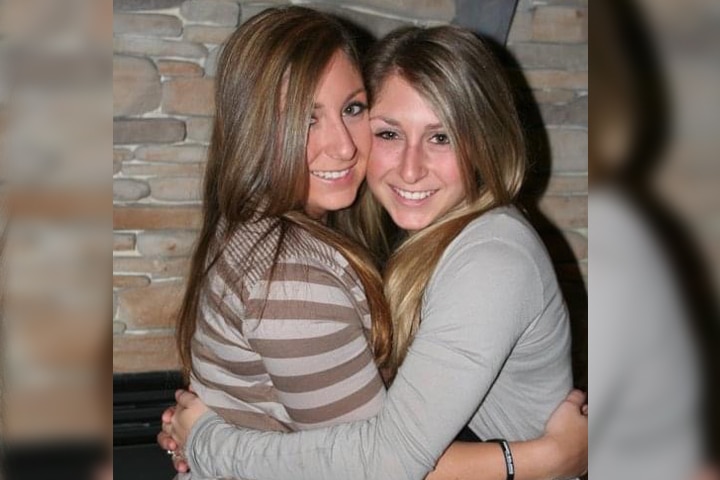
Sammie
Stage 4
Genetic testing is a powerful tool to gauge a patient’s risk for disease. On the surface, the concept may seem like a no-brainer, right? A little swab of the cheek or a drop of saliva and bam! All the secrets to your body’s genetic problems revealed! Like a road map to predict future defects and diseases such as cancer. For me, I have a personal bias towards genetic testing because it saved my twin sister’s life.
When I was diagnosed with stage II breast cancer at age 32, I spoke with a genetic counselor and we went over my family’s history of cancer. My mom had breast cancer at the age of 50 and tested negative for any genetic abnormalities. My dad’s mom also had breast cancer when she was 50 and also tested negative for genetic abnormalities. So when I got tested I thought I would pass the test with flying colors. Plus, I was a straight A student, I’m great at taking tests! Wrong! My tests showed positive for BRCA1 genetic mutation. People with BRCA1 have a higher chance of developing breast and/or ovarian cancer in their lifetime. I thought…how on earth did I manage to get BRCA1 if neither my mom or my dad’s mom had it? Hey Ma……is there something you’re not tellin’ me?
Turns out, men can be carriers of BRCA1. When I found that out, my mind was blown! I had no idea that my dad had BRCA1 nor did I know he could pass it down to his kids. In fact, no one in my family knew. I was also surprised to learn that men with BRCA1 have a higher risk of prostate cancer, skin cancer or digestive tract cancer. My Dad had skin cancer a couple years back but didn’t see the need to get genetic testing. (www.breastcancer.org)
That leaves us to my favorite person in the world, my identical twin, Mandy. Being identical, it was no surprise when her tests came back positive for BRCA1. My heart broke for her. I could only imagine what was going on in her mind. She had just gotten married, and was talking about starting a family, and all of a sudden she gets this bomb dropped on her! Ugh, so unfair. When I got a bilateral mastectomy, I felt I didn’t have a say. Cancer took my decision away from me, but for Mandy, this is and will be one of the hardest decisions she will ever make in her life.
Knowledge is power and action will continue saving lives. Genetic testing allows patients to be proactive about their own health, and help other family members who might be at risk. When I found out Mandy had BRCA1, I strongly believed that Mandy should arrive at a decision herself, even though I was silently chanting in my head “cut them off they want to kill you!”!
After talking it over with her medical team, Mandy eventually decided to have a prophylactic bilateral mastectomy. The surgery went well and she is doing great today. Her medical team is monitoring her ovaries alternating between blood tests and ultrasounds every 6 months since she is still at a high risk of developing ovarian cancer.
Mandy had no control over being born with BRCA1 but she did have control over the decisions she made about her health, her body, and the measures she can take to prevent herself from developing cancer… Knowledge gave her the freedom to live her life without having to think she was a walking, ticking time bomb.
As for me, ha, well I have been through the ringer. I have had 1 round of IVF, egg extraction, 8 rounds of chemotherapy, a bilateral mastectomy, skin repair surgery, exchange surgery, developed lymphedema and had an oophorectomy.
Although my body is still healing from cancer treatments, my mind has changed for the better. Pre-cancer Sammie would have looked at her situation in a negative light. Maybe she would have felt sorry for herself, letting out a little “whoa is me” sigh as she snuggles up with her goldendoodle. But Post-cancer Sammie is grateful to still be here. Don’t get me wrong, living with metastatic breast cancer isn’t a picnic, but if my story can save one life, or inspire one person to get tested…..then it will all be worth it.



